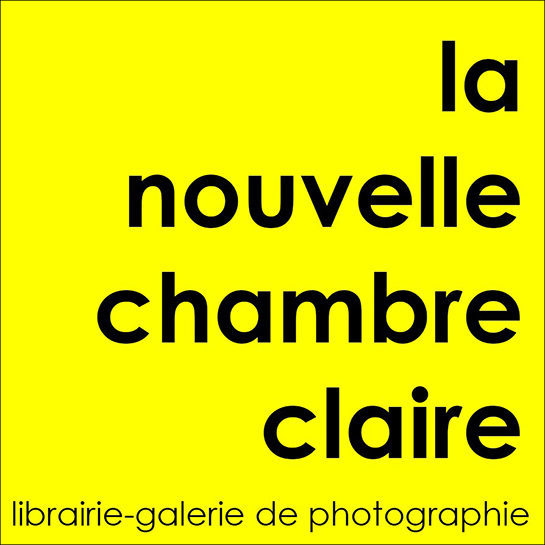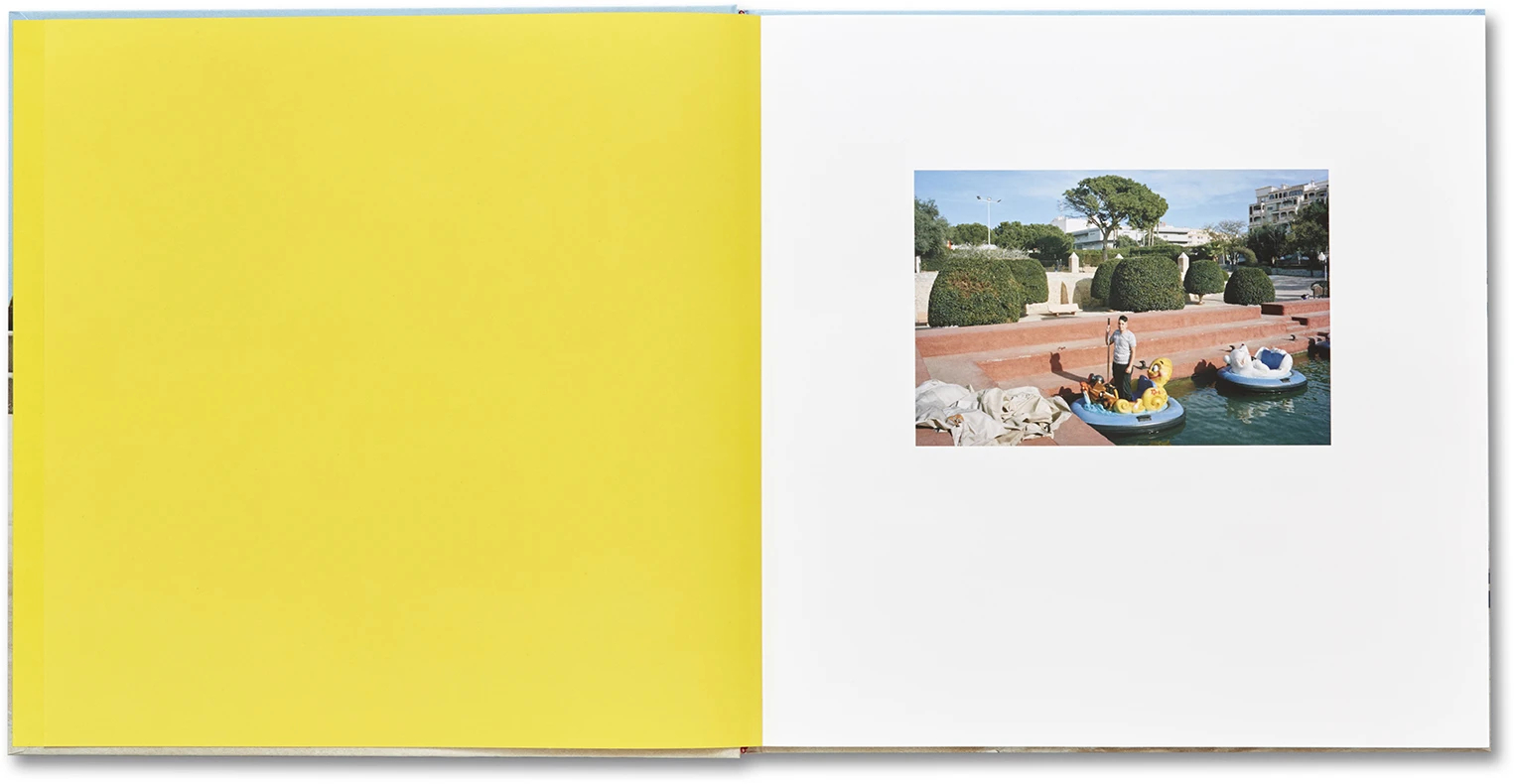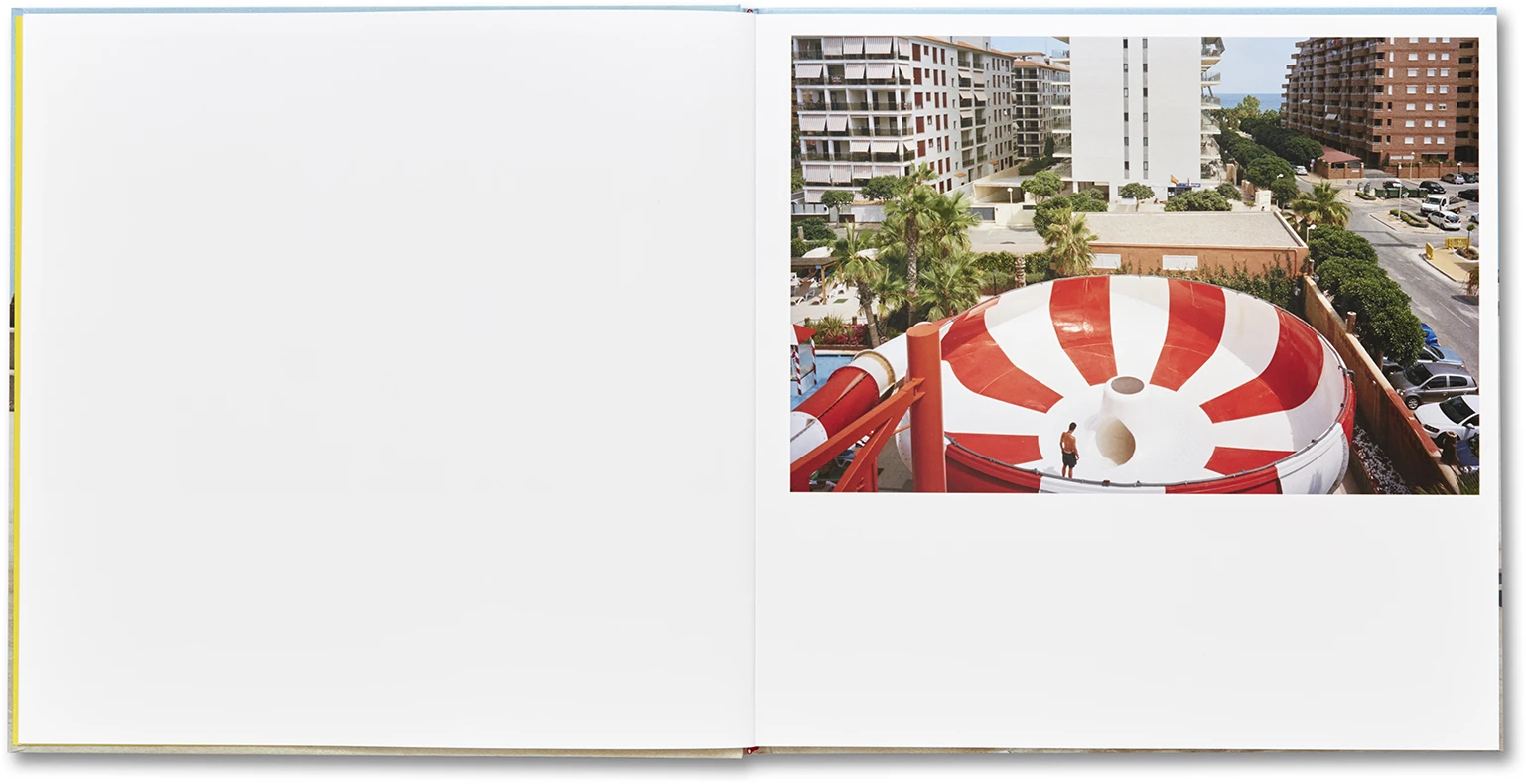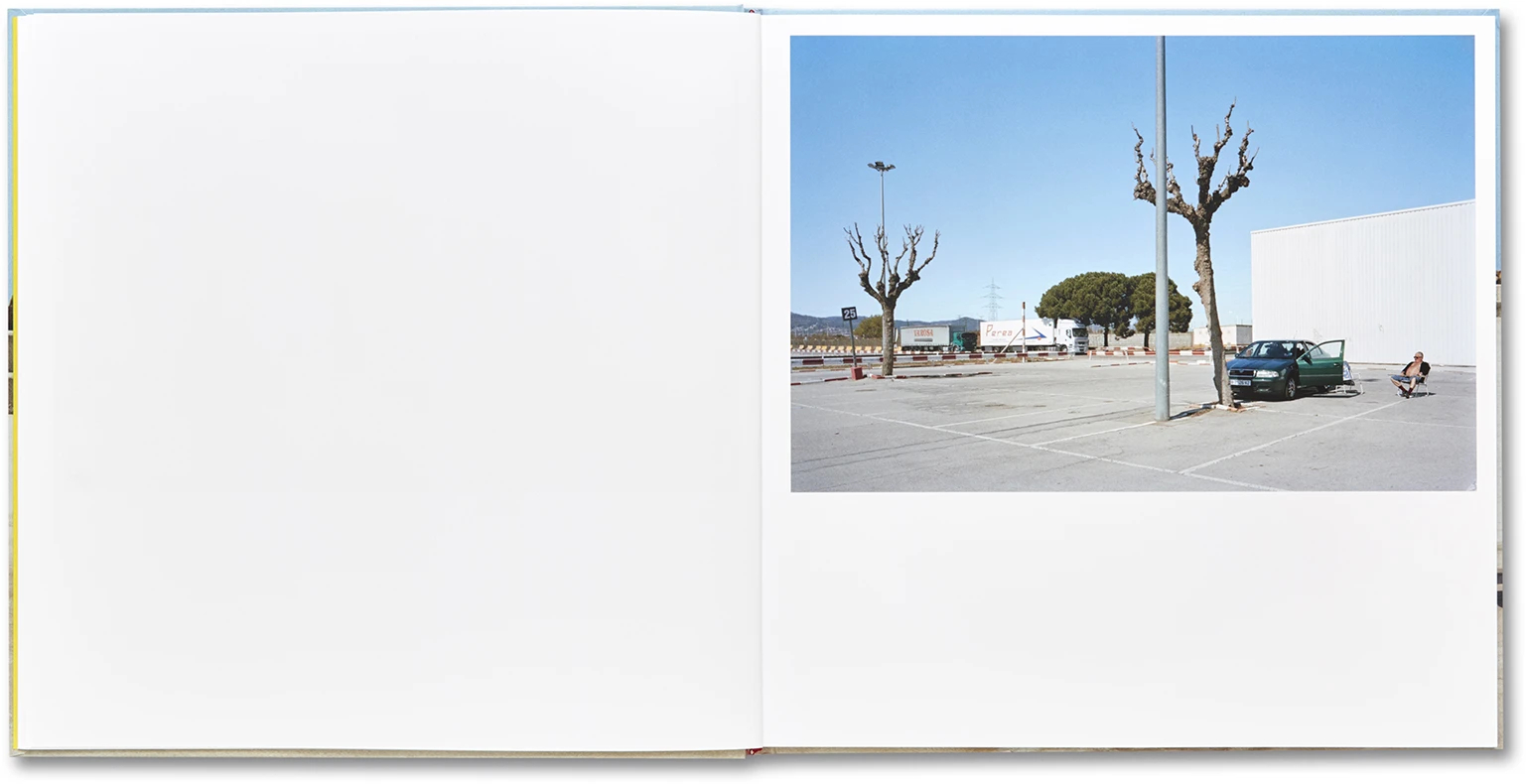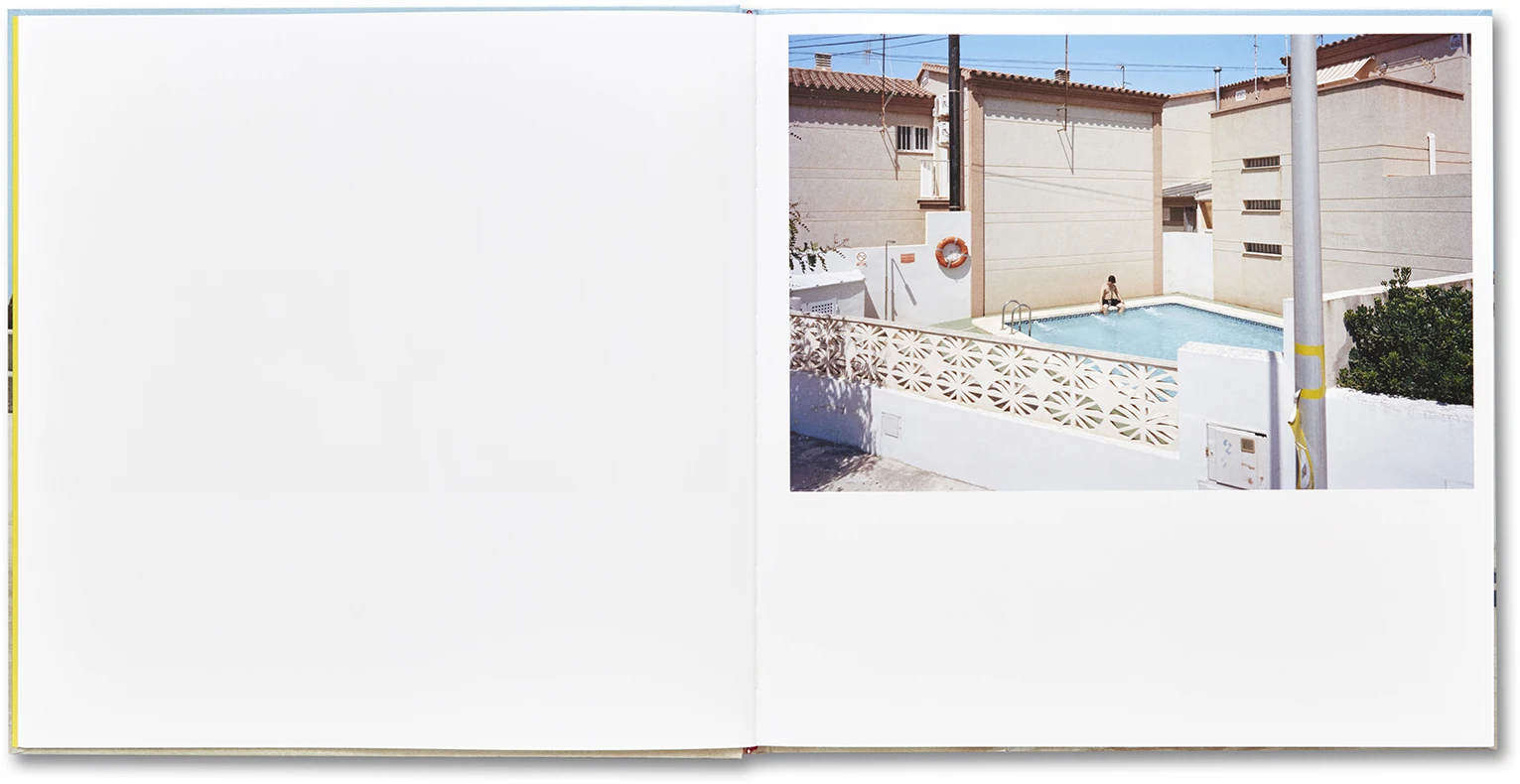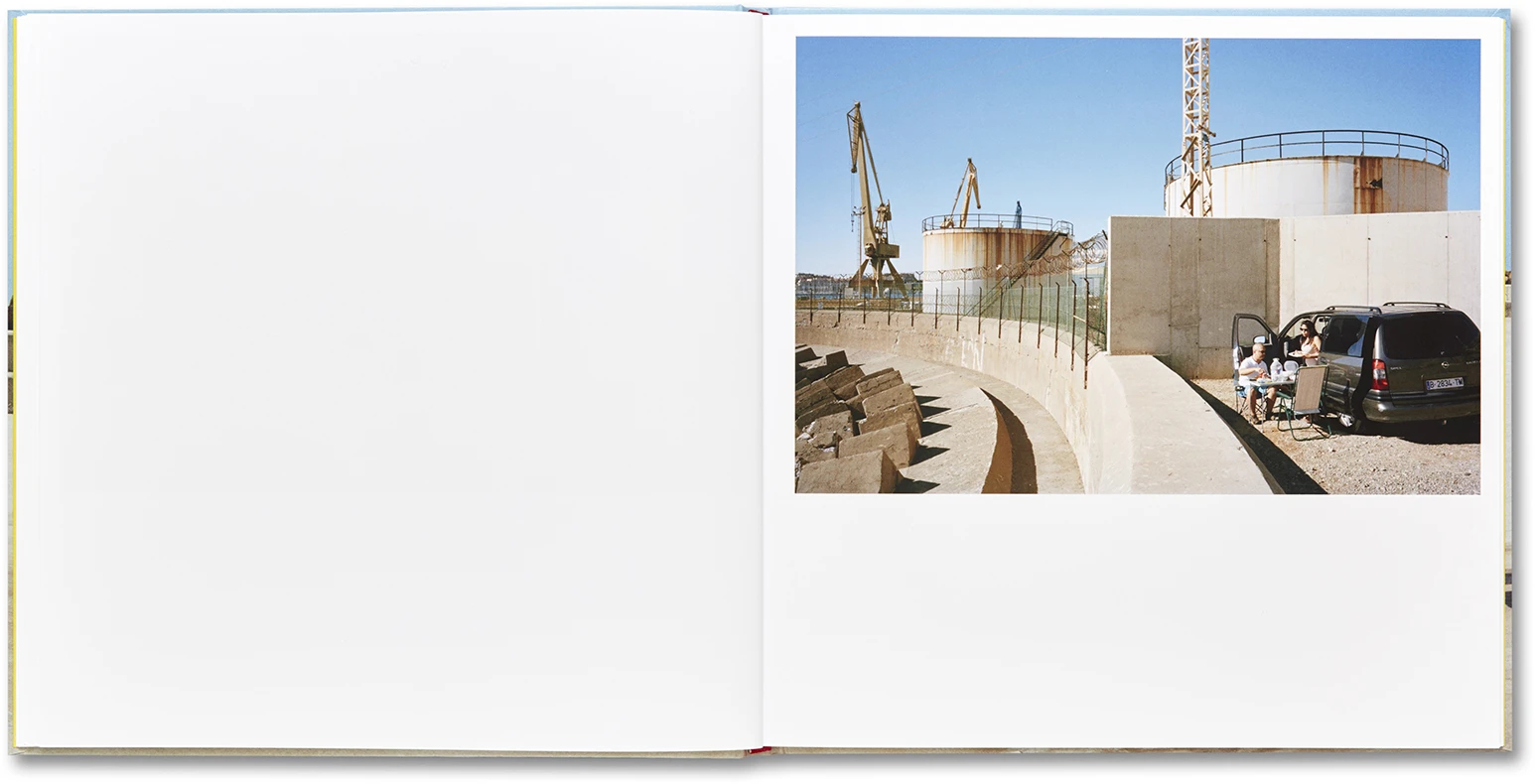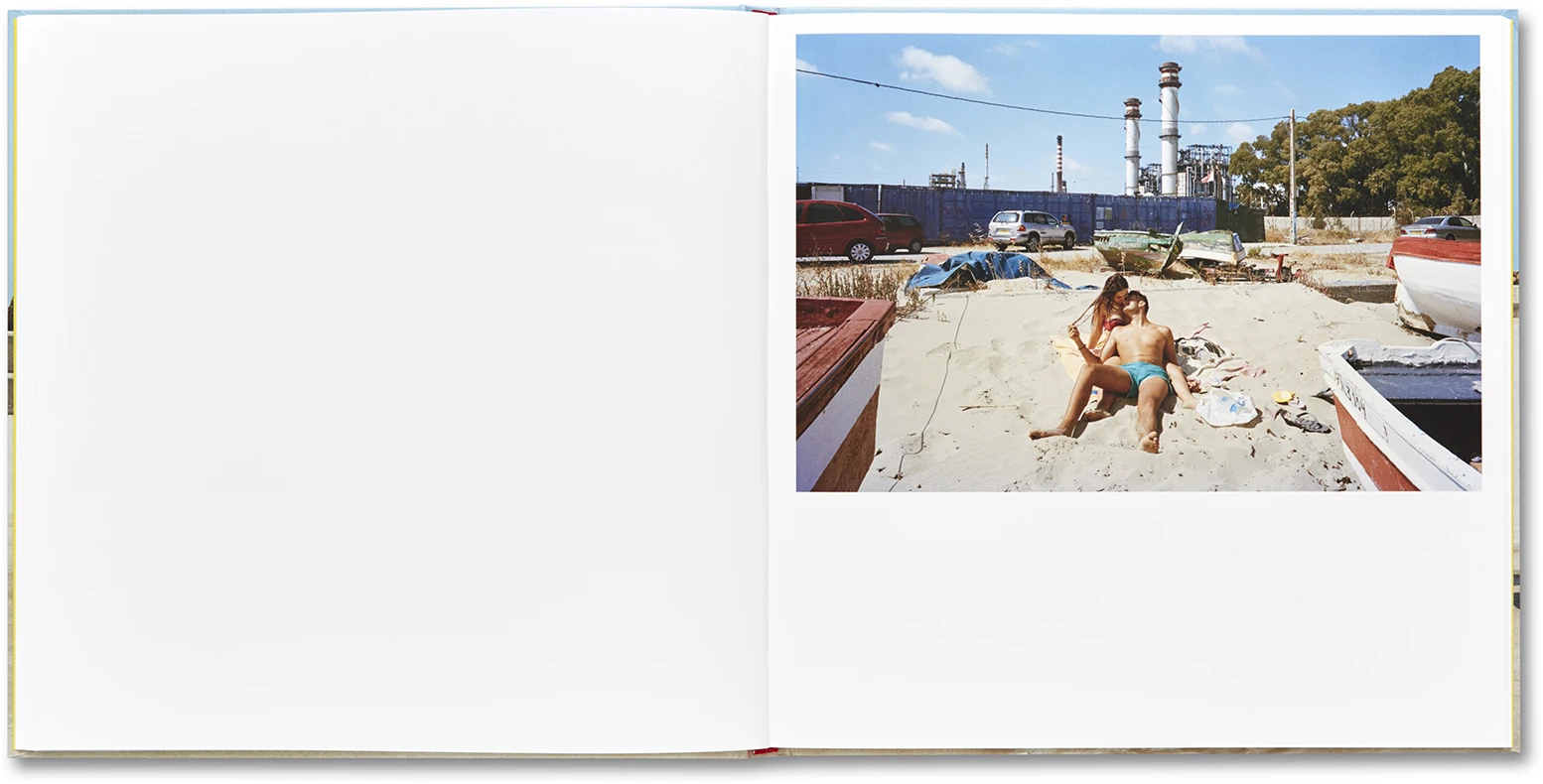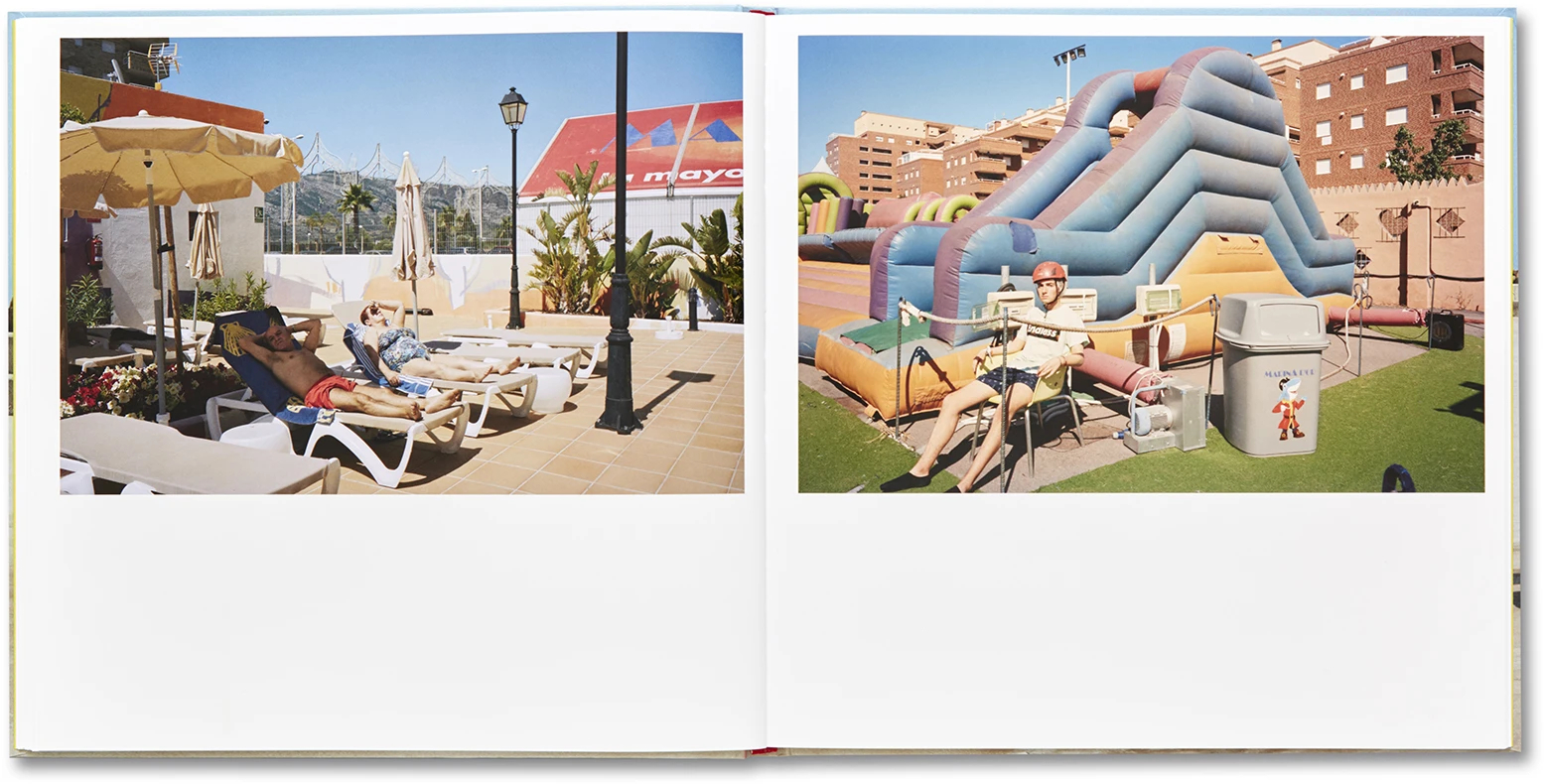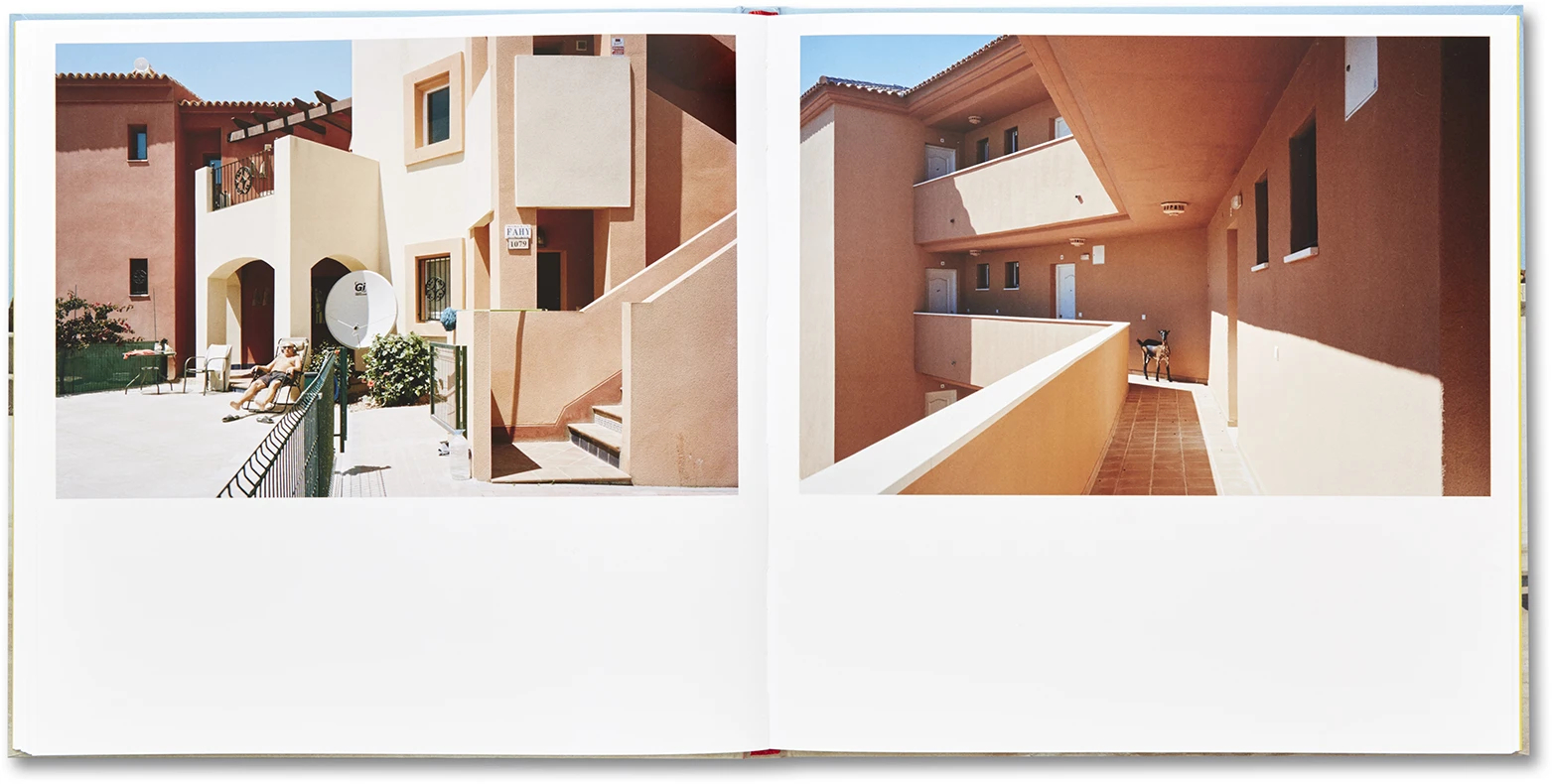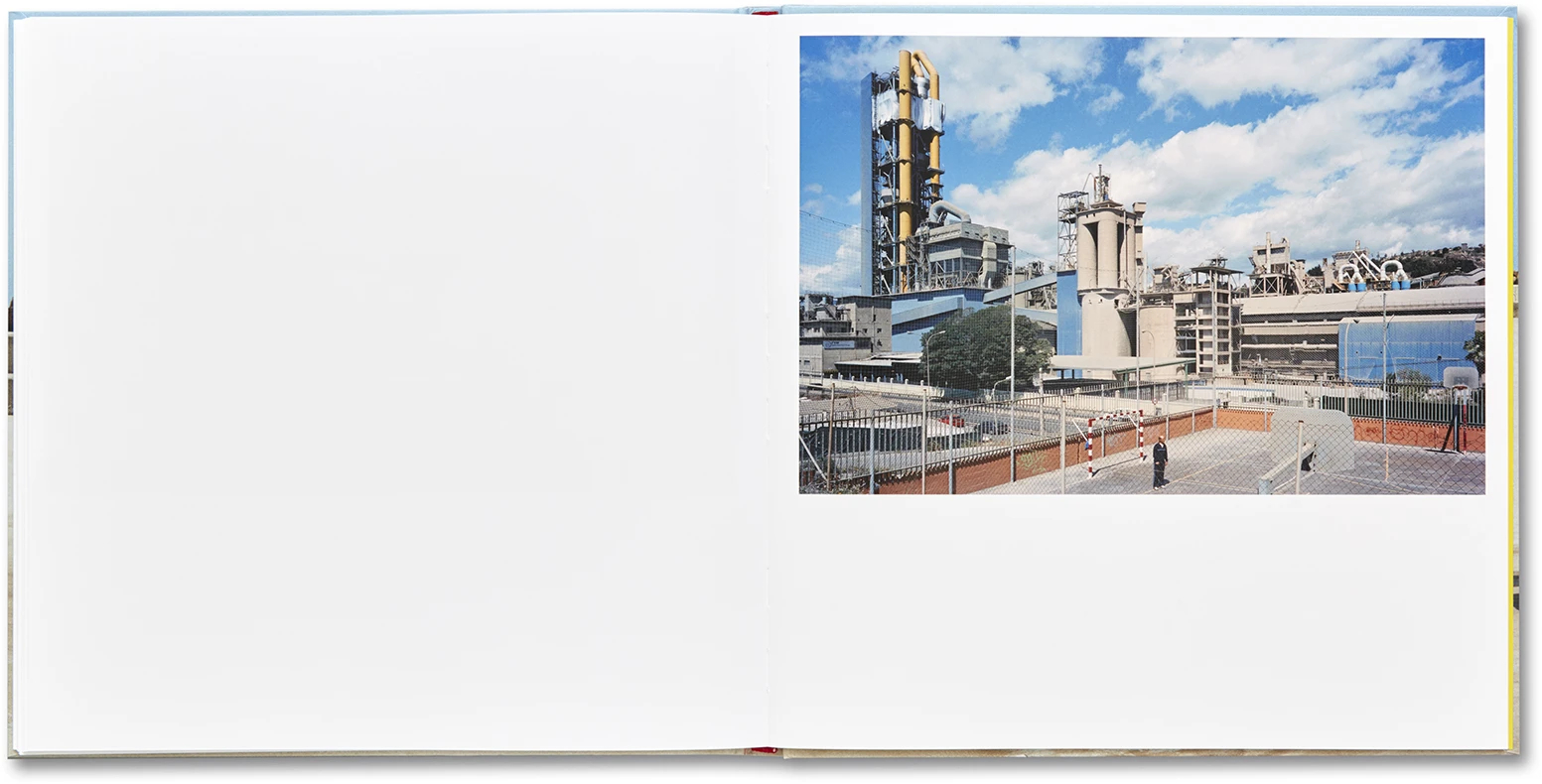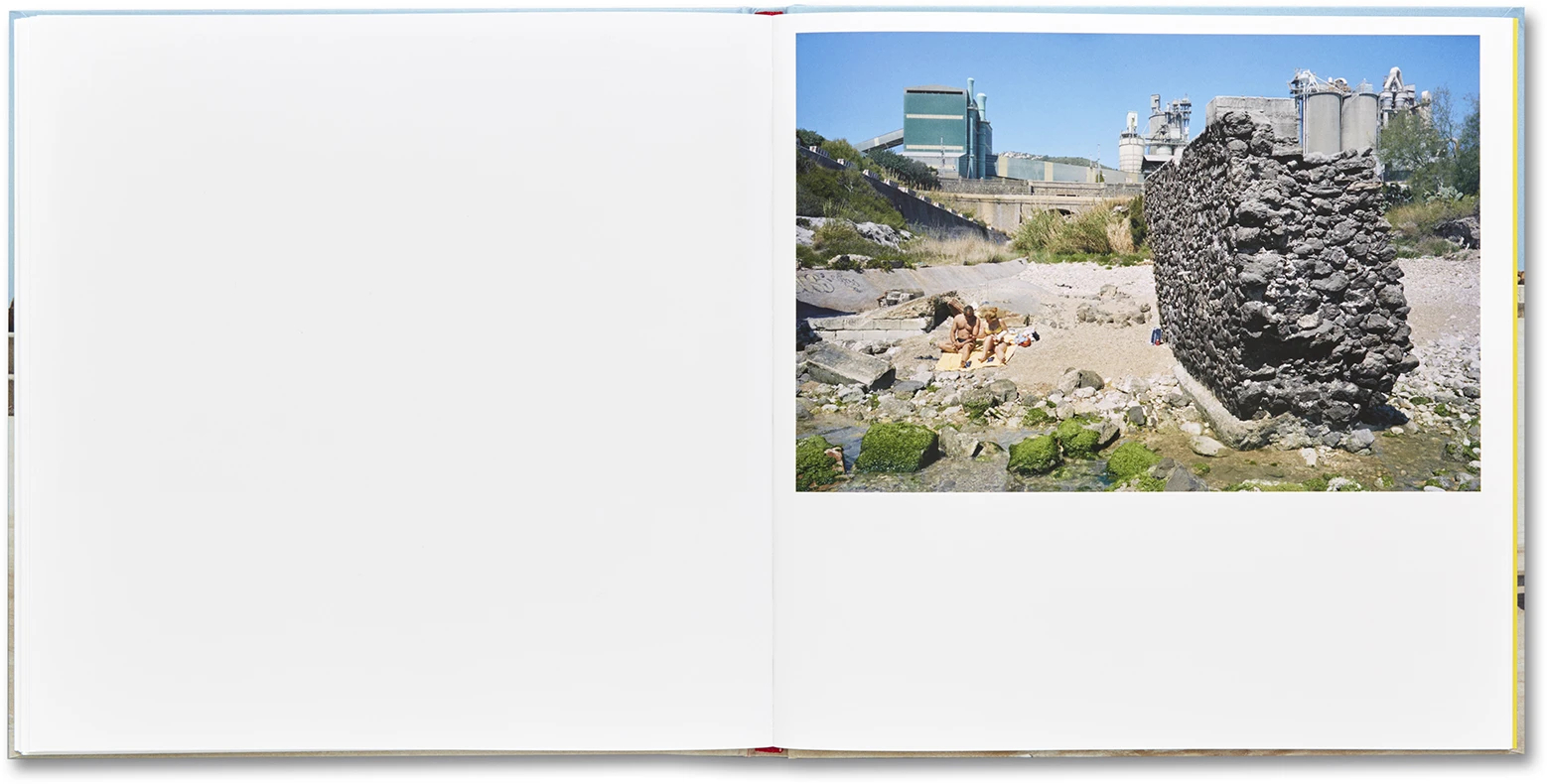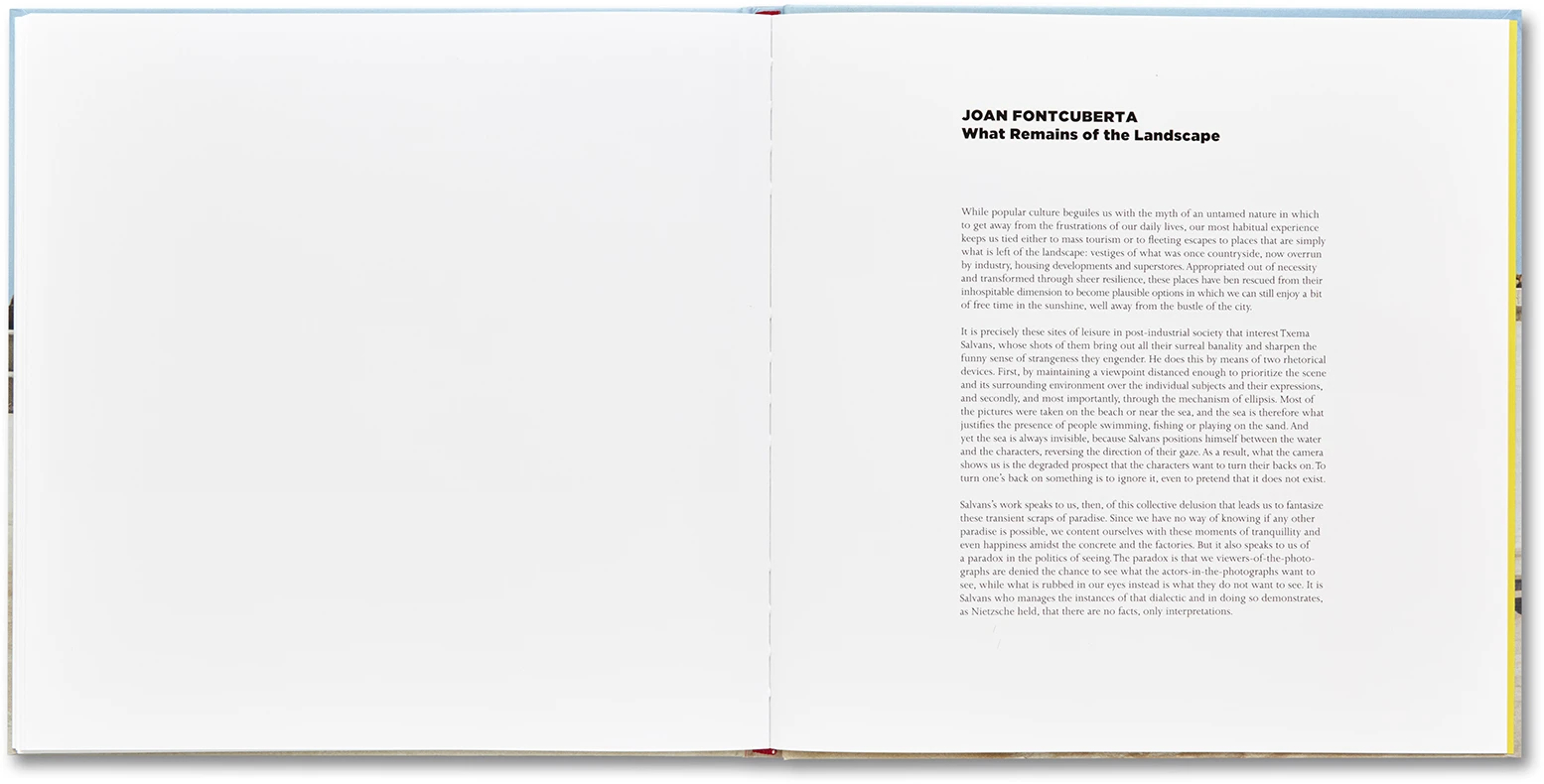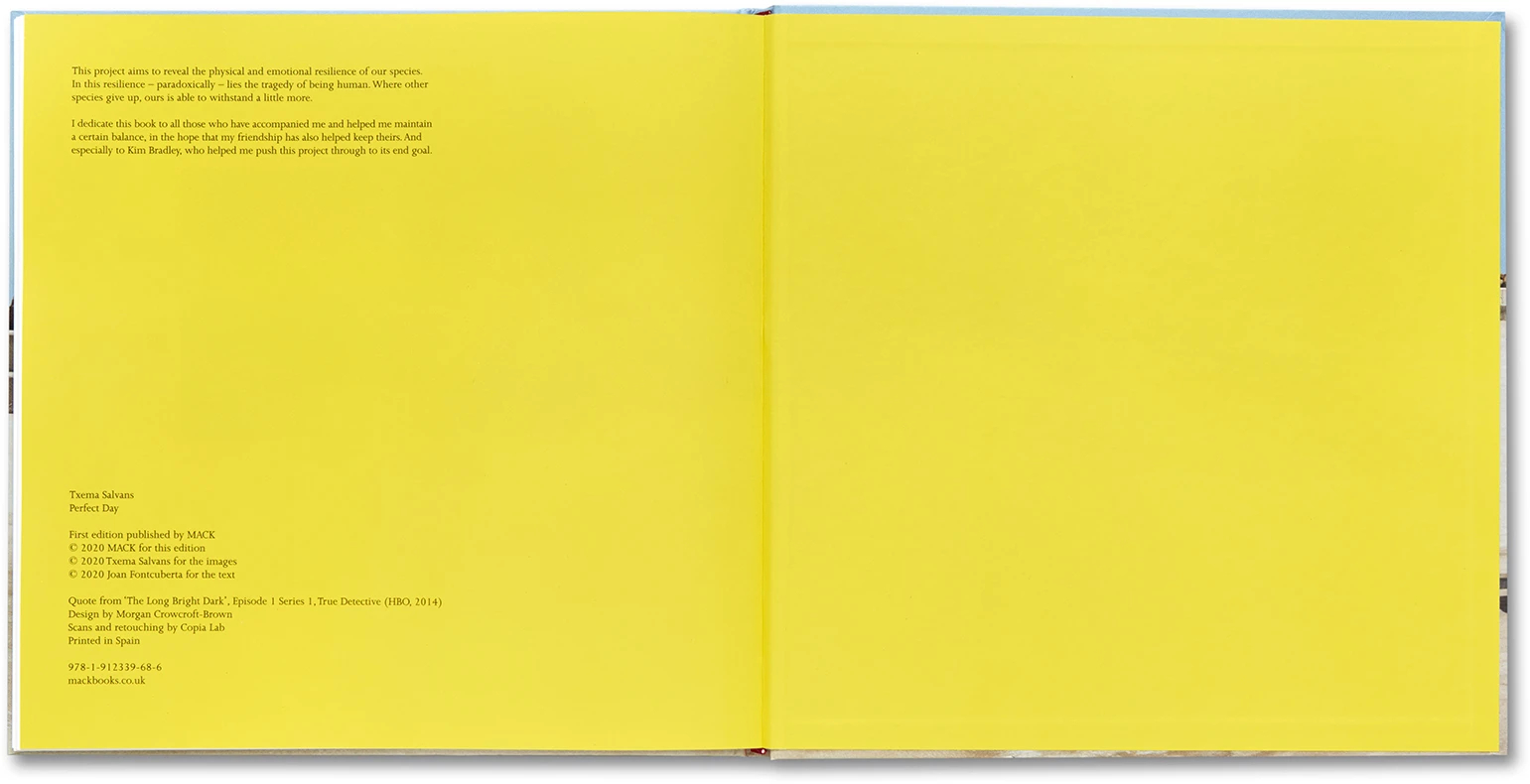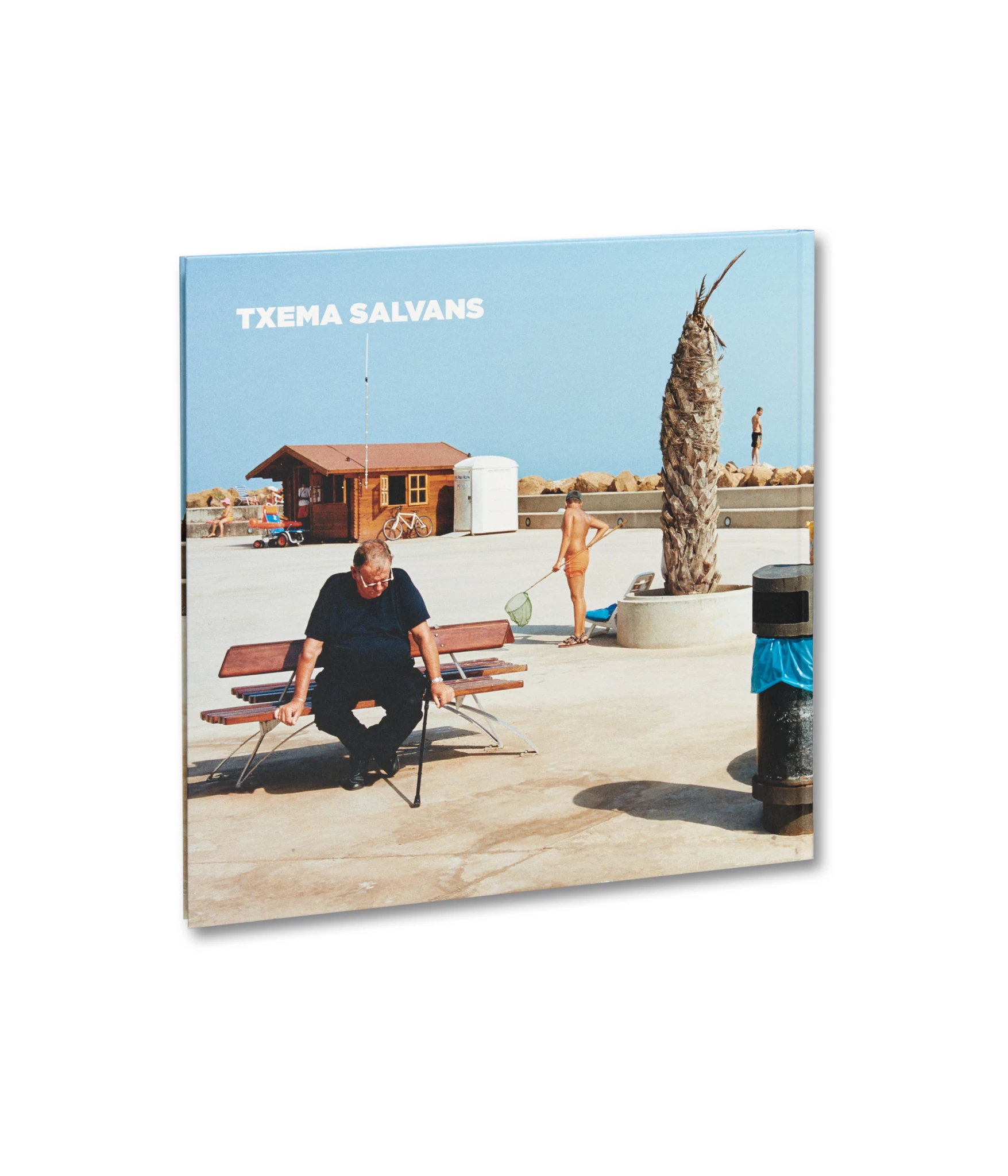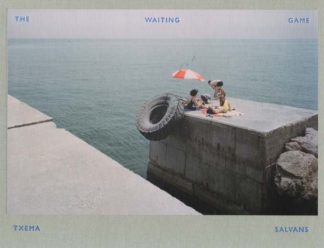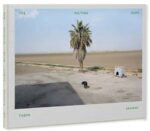Dans Perfect Day, Txema Salvans photographie les vacanciers espagnols dans des recoins inattendus du paysage postindustriel. Les bains de soleil se rassemblent dans les parkings, les piscines sont nichées entre des bâtiments envahissants, et des grues et des tours de refroidissement surplombent les plages. Dans ces scènes surréalistes, banales et humoristiques, Salvans révèle comment la poursuite des loisirs persiste malgré les pressions inquiétantes de l’environnement bâti, exprimant une profonde détermination humaine à s’adapter et à trouver le repos, contre vents et marées.
Bien que beaucoup de ces photographies aient été réalisées près de la mer, la mer elle-même reste invisible : un témoin silencieux, implicite et un fond qui a été inversé. Au lieu de cela, nous voyons – dans un sens littéral – ce que les sujets des images veulent tourner le dos. Sous la surface de ces tableaux scrupuleusement composés se trouvent de puissantes questions sur la classe, l’identité nationale et la politique de l’espace : une représentation de plaisirs simples défendant nos droits ; postface de Joan Fontcuberta, photos en couleurs.
« An illuminating look that delves into the human being and his relationship with that degraded space in which he lives, where reality is more certain, also more threatening, accentuating his most absurd side.” / [« Una mirada esclarecedora que profundiza en el ser humano y en su relación con ese espacio degradado en el que habita, donde la realidad se muestra más cierta, también más amenazadora, acentuando su lado más disparatado. »] – El País
« ‘Perfect Day’, the fifth book of the Spanish artist, shows an isolated humanity and social distance even before the outbreak of the coronavirus. » / [« ‘Perfect Day’, il quinto libro dell’artista spagnolo, mostra un’umanità isolata e a debita distanza sociale già prima dello scoppio del coronavirus.”] – Rolling Stone Italia
In Perfect Day, Txema Salvans photographs Spain’s holiday-makers in unexpected corners of the postindustrial landscape. Sunbathers congregate in car parks, swimming pools are nestled between encroaching buildings, and cranes and cooling towers loom over beaches. In these surreal, banal and humorous scenes, Salvans reveals how the pursuit of leisure persists in spite of the ominous pressures of the built environment, expressing a deeply human determination to adapt, and find repose, against the odds.
Although many of these photographs were made near the sea, the sea itself remains invisible: a silent, implicit witness and a backcloth that has been inverted. Instead, we see – in a literal sense – what the images’ subjects want to turn their back on. Beneath the surface of these scrupulously composed tableaux are potent questions about class, national identity, and the politics of space: a depiction of simple pleasures advocating our rights to them.
